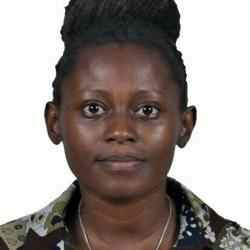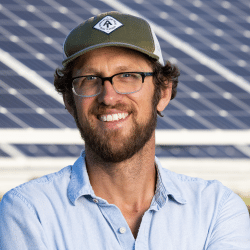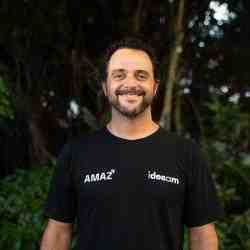In 1994, Catalyst Management Services (CMS) was started by Raghunathan and his co-founder, Shiv. CMS started as a consulting organization to bring professional management support to development organizations and was involved in various projects like mapping ROI on a village development project, mapping channels of the traditional fish sector in the Bay of Bengal, and consulting with the Department of International Development. Over the years, CMS then established their own social labs – Swasthi and Vrutti, and also supported a number of other organizations, GREEN Foundation and FishMARC are a part of their group of institutions. Apart from the social labs that were set up by CMS, Raghunathan also built on his strengths and worked towards understanding the dynamics of the unorganized milk sector, working with women fish vendors, scaling women owned businesses in partnership with Walmart, providing entrepreneurial support, enterprise support and environmental support.
In 2002, Swasthi was set up as a health resource center to work with sex workers and transgendered communities. They began their work with supporting Targeted Intervention (TI) to control HIV in India, working with high-risk groups such as Female Sex Workers. Leading from this work, Swathi Jyothi, a cooperative by sex workers, was born where the sex workers created their own products (like savings on the field and emergency withdrawals) and had their own governance and management structure. Raghunathan, through evidence from this work, found that by improving their financial security, social protection, and ability to engage as an institution reduced their vulnerability and risk to HIV significantly. Following from this work with the sex workers community, Raghu realized the importance of such integrated services to better the livelihoods of farmers and launched the organization Vrutti.
Vrutti was registered as an entity in 2004, focusing on livelihood impact models, it was started by Raghunathan to build on his strengths and passion for people’s livelihoods. Vrutti and Swasti are not-for-profit organizations registered under the Karnataka State Societies Registration Act, 1960, which function independent of CMS with different Board of Directors. Raghunathan is now the Chief Mentor and the chief guiding officer at Vrutti which allows him to work on the vision and mission of the organization, to create larger partnerships and build ecosystems - instead of the day-to-day administrative duties.
Vrutti’s work began with an impact assessment of agricultural intervention plans in the tribal areas of Madhya Pradesh. By 2009, the first Agriculture Enterprise Facilitation Centre was set up in MP and the 1st pilot was conducted with 250 farmers. This pilot project led to self-organization and collaboration among the farmer group in different ways like producing their own bio-pesticides or moving into first stage processing, for example pulping of tomatoes into paste, leading to higher and steady income for these farmer groups. Subsequent scaling steps led to an investment by NABARD under their Rural Innovation Fund. This partnership to scale the farmer/entrepreneur program across the country with 5 state governments helped them figure out how to scale to larger farmer organizations, and to sharpen their selection criteria and range of services. This work further evolved into the ‘3Fold idea and model’ to integrate services like farm advisory and planning, input services, seeds, fertilizers, financing, and farm evaluation.
By 2014-15, the 3-fold model was being tested and scaled up by Raghunathan’s organization and team, in partnership with Mindtree, Social Venture Partners and Industree. It is currently operational in seven clusters across five states in India. In 2017, Raghunathan received support from Nandan Nilekani’s team to integrate the artisanal and informal industry on his platform through Industree. An important aspect of this Platform for Inclusive Entrepreneurship (PIE) is creating families as enterprising units by bridging access to knowledge, capital, and the integration of farming and non-farming/artisanal options by helping them create a business plan. Additionally, support in building market to meet the demands with supply through market linkages and reducing middlemen to increase profitability is also facilitated.
The Four key elements of this model are activators/integrators, partnerships, technology -I Got Crops, and business model at cluster levels. I Got Crops (IGC) is a digital platform, built in collaboration with Mindtree as part of their CSR, for the onboarding of farmers, farmer learning groups, input services and currently adding B2B and B2C services. IGC enhances the entire agriculture value chain for a farmer – from crop selection to distribution and sales. Through the platform, farmers can get access to information in choosing the right crops, demand forecast, access to cheaper seeds, insights into how to plan crop cultivation, cheaper fertilizers and pesticides, access to best practices, access to fair and remunerative markets with no middlemen and greater profits. PIE is constantly evolving and expanding its assets, partnerships, and producers, with stakeholders from Government, private sector and civil society contributing to the platform ensuring collective impact.
By working with families as enterprises, Raghunathan also works with women owned businesses and towards women empowerment in the agriculture index. In the Indian agriculture context, 60-70% of the work is being done by women while the land is not owned by these women. With 1/3 of the members of the producer organizations being women, Raghunathan is working with women groups, enabling them with capacity building, economic benefits, ability to deal with the value chain, decision making in sales, and bringing them to the front.
Raghunathan aims to increase the participation of women, build resilience in the community by creating self- sustainable groups in form of corporative & self-help groups, increase family income, and scale women owned businesses by providing entrepreneurial support, enterprise support, and environmental support. His work with farmers and families goes beyond just poverty reduction, he works towards building resilience and self-sufficiency and has scaled across the country. Working with farmers and families to create institutions and making them sustainable by integrating technology to bring the formal and informal sector stakeholders to the micro, small and medium enterprises/farmers. He envisions to bridge the gaps in the system by working with various state governments and rural livelihood missions to implement government schemes and build self-supporting communities across India.
Through the 3Fold Model and Vrutti’s work with FPOs, they have reached over 130,000 small and marginal farmers and landless laborers in seven states, about 50,000 micro-small-medium entrepreneurs/women-owned businesses, over 200,000 women factory workers in over 240 factories and 21 brands, key populations (130,000 female sex workers, transgendered, men who have sex with men), disaster affected (over 70,000), ultra-poor, unorganized salt workers, and artisanal fisherfolk (over 40,000); and over 500 community organizations and non-profit/social enterprises that engage with these communities.
So far, PIE has directly impacted 22,500 small producers, accessing services through the platform, experiencing increase in net income by 3-10 times. The model is set to reach millions of small producer farmers across India through partnerships with government, civil society, market players (like big basket), and donors and academia to continue the support initiative and train people.
Read less


